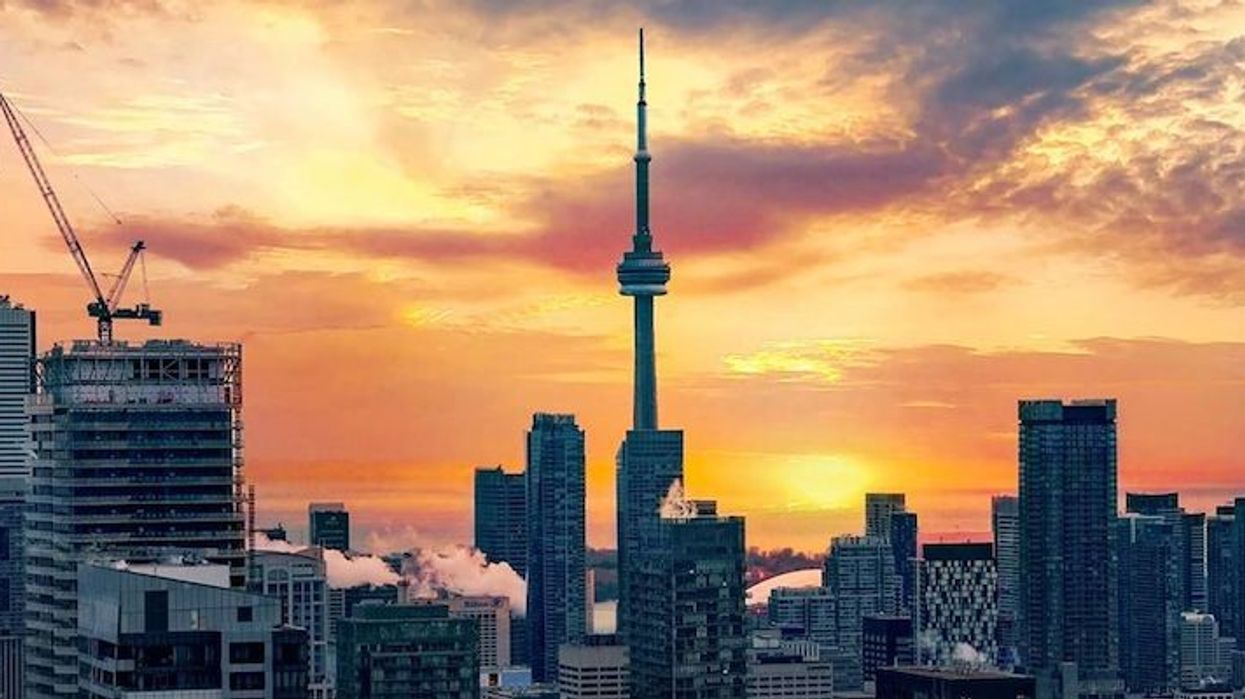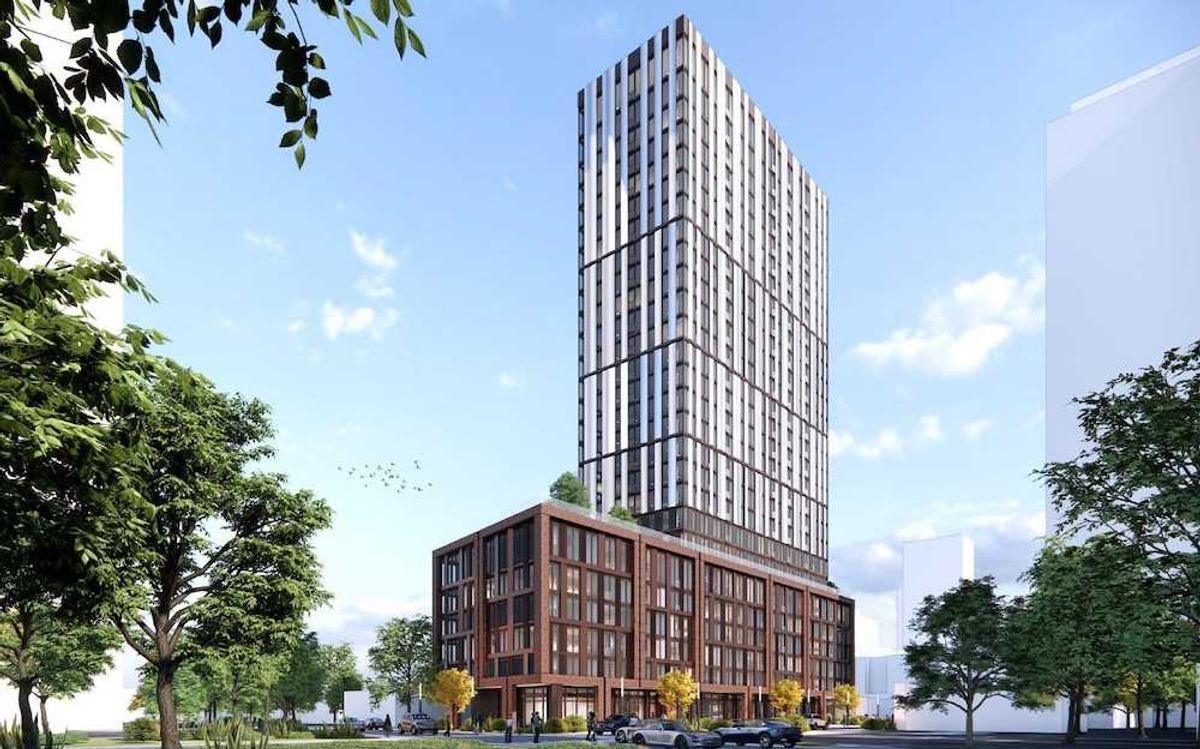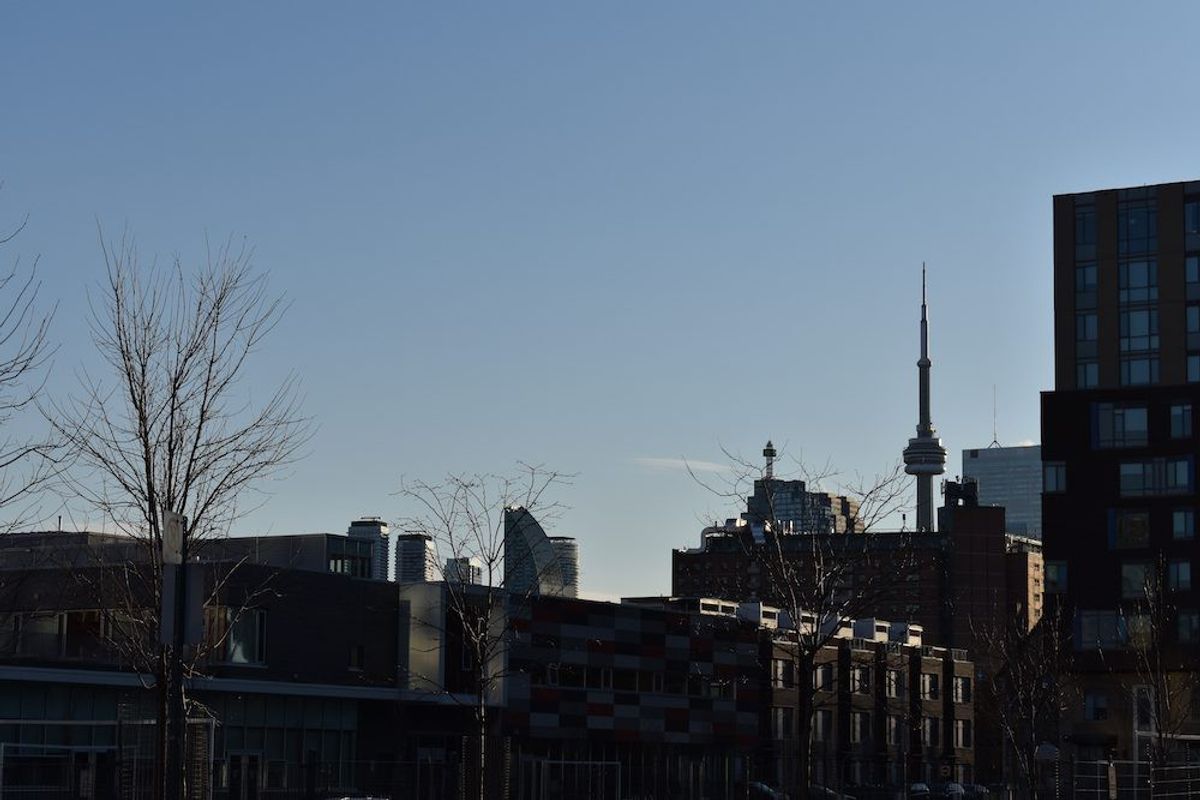We're in the middle of a pandemic. Unemployment is at an all-time high. Millions of people are without a job.
And the Toronto real estate market couldn't care less.
If you're looking for a COVID-discount on your next property, you better not be searching here – 'cause you won't find it. What you will find, just weeks removed from arguably the worst month in our nation's economic history, are multiple offers and buyers and sellers with more and more confidence.
"It’s so hard to say why it’s shocking," says John Pasalis, president of Realosophy Realty. "While nobody was expecting it to fall off, no one was expecting it to take off like this. The market is insanely competitive right now."
Pasalis notes that in April, multiple offers seemed to die down, but now "we're back to bidding wars."
"Buyers may have hit pause for two months, but it’s not like they lost their buying desire altogether," Pasalis suggests when asked why he believes the market is seeing the amount of action it's currently experiencing. "People who were out of the game, they're jumping back in."
READ: In-Person Home Tours in Toronto Up 95% in May Compared to April
But Pasalis doesn't think new, record-low mortgage rates are what's driving the momentum. "Perhaps there are a few people who see rates under 2% and think, good gosh this is crazy, that might be part of it. But overall, rates don't create buyers, they create a little more urgency."
The sub-2% rates Pasalis is referring to came about just last week, when HSBC lowered its five-year fixed mortgage rate to 1.99%, becoming the first bank in Canada to “crack” the 2% barrier. It was the first bank to do so, but it certainly may not be the last.
The main reason home prices in Toronto aren't dropping is that supply and demand have fallen in tandem. Meaning, while fewer houses are for sale for fewer buyers than in previous years because both have fallen equally, the demand (buyers) is still strong relative to the supply (sellers). So much so, in fact, that Toronto real estate is still very much a sellers' market.
"It comes down to supply and demand," says Jerome Trail, owner and broker of record at The Mortgage Trail. "With approximately half as much sales activity, with an equivalent drop of available product in the marketplace, the activity taking place is still a sellers' market (like before the pandemic hit). Bidding wars are back in highly coveted areas and with properties that are priced reasonably. We have had a number of clients involved in multiple offer scenarios in the last few weeks."
Trail is among others reporting a renewed level of competitiveness in the market.
“You’re seeing it with everything, not just real estate. There's a combination of pent-up demand everywhere – to see your friends, get out in nice weather, and to buy homes," says Scott Ingram, a CPA and sales representative with Century 21 Regal Realty Inc.
Ingram tracks the weekly rates of units sold for over asking in Toronto, suggesting it's a good way to measure buyer and seller confidence (Ingram notes the stat is not intended to represent an accurate market data point as too many of the properties are "bogus underpriced units" intended to start a bidding war, but rather an indication of where market trust is).
The week ending March 29 saw the highest percentage of freeholds sold for over asking price (67%) since 2017. The low point of the COVID impact, reached a month later, was the week ending April 26, when only 20% of freeholds in the 416 went for over asking. Just six weeks later, the week ending June 7, and the Toronto market is already back up to 42% of freeholds going for over asking. It's been a yo-yo to be sure, but it certainly seems as though the market has hit its lowest point and isn't looking back.
"The Toronto Real Estate market seems detached from economic fundamentals," Ingram says. "If you’re looking at the macro-economic trends, things should be softening, there are definitely more headwinds than tailwinds in the market right now, but it continues to defy gravity a bit."
So what is driving the market's competitiveness right now? Simply put, a lot of people want to live and own property in Toronto.
In a report released just this week from Ryerson University’s Centre for Urban Research (CUR), Toronto was recognized as the fastest-growing metropolitan area in both Canada and the US. The City of Toronto added 45,742 persons last year, more than the two fastest-growing US central cities combined, Phoenix and the city of San Antonio, which grew by 26,317 and 17,237 persons, respectively.
Will immigration be affected by COVID? Absolutely. But likely not enough to have an impact big enough to hurt the resale market (the rental market may be another story). A May 12 report from The Conference Board of Canada estimates the number of people coming into the GTA will drop from approximately 100,000 to 65,000 due to the pandemic in 2020.
“Even if a bunch of buyers pump the brakes, and put themselves on the sidelines through this, you still have so many people at the entry-level waiting to get in,” Ingram notes. He also found that in May, 24% of GTA sales were for $1 million or more, meaning, of course, that 76% of sales were under $1 million. The pool of buyers under a million-dollar price point is obviously much higher than above, and so, as Ingram points out, perhaps in January or February of this year sellers may have been getting five, six, or even eight offers; now they’re getting two or three. But they’re still getting multiple offers.
As for how long this competitiveness will last, Pasalis believes at least until the end of the summer. "What I’ve been concerned about is the debt deferral, but what I’m starting to think is that while there’s obviously a deferral risk in the fall, I don’t think it will be enough to change the market, you need a rapid shift to put downward pressure on home prices and I don’t think that will happen."
READ: Thinking of Adding a “COVID Clause” to Your Real Estate Deal? Don’t
The looming "deferral cliff" was made famous by CMHC in a mid-May report that forecast housing prices across the country to drop between 9 and 18% over the next 12 months. (The report received some pushback from the housing industry.) But the 416 does not represent the entire country, and the Toronto real estate market doesn't seem to be adhering to many of the forecasts and predictions being put forward right now.
"If I had to guess – and everyone is just guessing – if you look at it as pent-up demand maybe there’s a spurt, a couple of months, but I think there’s such a large number of entry-level buyers I can see [market competition] lasting a long time," says Ingram. "Long-term, this market has a lot going for it, the whole world-class city thing, it’s still a desirable city to live in – if people have long-term horizons, I think they’re going to be fine."
As for the recently announced CMHC mortgage application changes set to take place on July 1, neither Ingram nor Pasalis suspects they're playing much of a part in the market's current surge. "First-time homebuyers are buying at the margin," Pasalis says, eluding to the same reasoning behind low rates, namely, they can create some urgency, but they won't put a significant number of new buyers in the market that otherwise wouldn't already be there.
"It’s not about timing the market," Pasalis adds. "You've got to be thinking about where prices are going to be in 10 years, not just in 6 months from now."
All this said, the market being 'on fire' right now still remains a relative observation. Is the market on fire compared to a year ago? No, it's not. But, in case you haven't been paying attention to the last three months, every week seems to have brought new changes, despairs, and adjustments – and for the Toronto real estate market to be as active as it is at this point in the pandemic is something very few people expected.
Most of us have been taking COVID one day at a time. And in that context, Toronto real estate is suddenly doing very well at a time when few things are. Will it last for months and years? No one knows. Just as no one knows how long the pandemic itself will last.
But, in the meantime, you'd better believe the rebound is real.





















